Author: Johan Brelin
Full title: Beskrifning öfver en äfventyrlig resa til och ifrån Ost-Indien, Södra America, och en del af Europa, åren 1755, 56, och 57. Af Johan Brelin
In English: Description of an adventurous journey to and from the East Indies, South America, and part of Europe, in the years 1755, 56, and 57. By Johan Brelin
In this book tip I want to mention a book by Johan Brelin, a sailor on the Swedish East Indian Company. The book was published in 1758 and the copy I have is a facsimile copy published in 1973. Johan got left behind by his crew on the island Ascension (then an uninhibited volcanic island) when he got lost and injured his foot while it got stuck in a crack. His ship had anchored there so the crew could catch some turtles to eat, and unfortunately Johan got astray from the the group that set out on the island.
But before that decisive moment, which made the book possible, the journey went on as it should. His stay in Canton has the most pages in the book and the richest accounts. He describes the life of Chinese as he saw it, he notes their homes, their food, customs, style, gardens, gods, art and even kitchen utensils. Something that drew special interest on his inventive mind. Johan’s father was an inventor and Johan himself did make some home utensils late on in Sweden inspired by his stay in Canton.
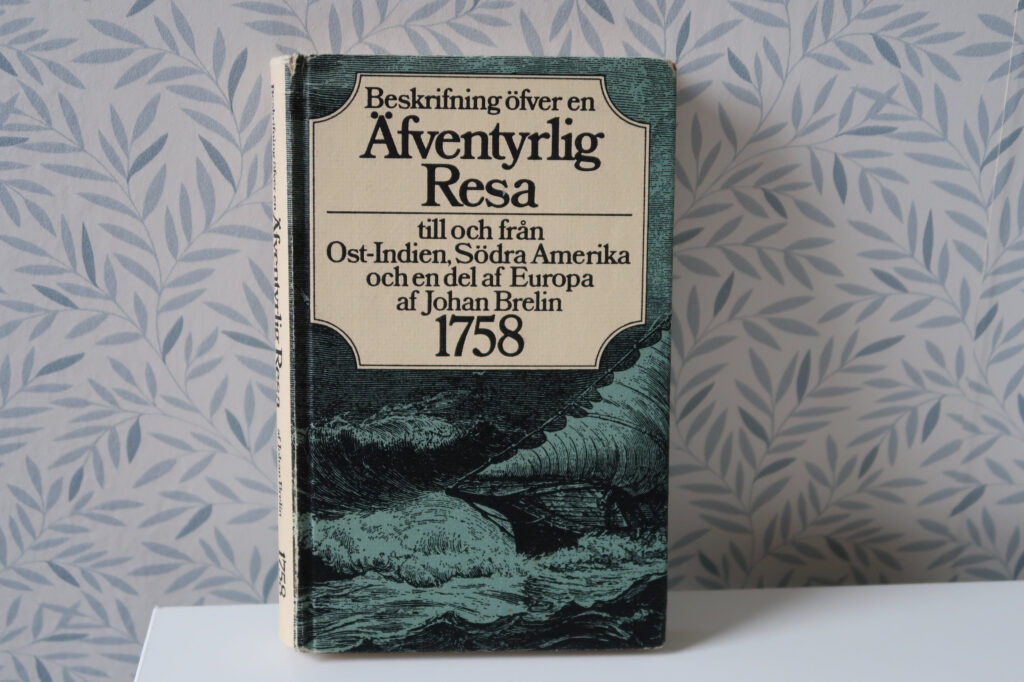
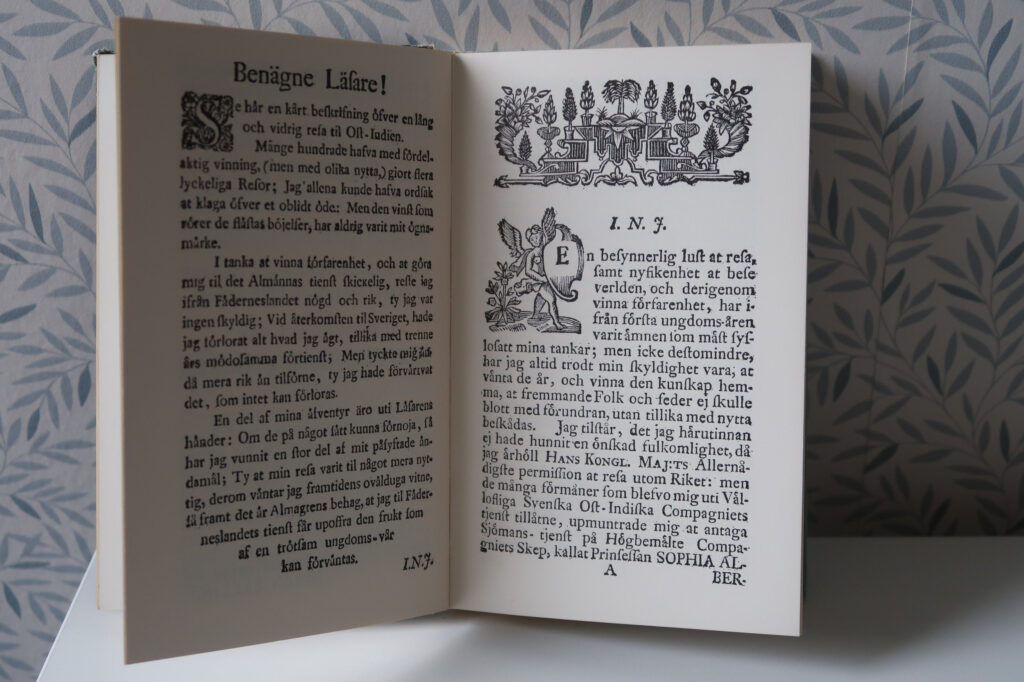
What followed after he got deserted was hardship on the island, among rats, scorpions and crazy animal screams at night. Along with search for food, shelter and all that typical survival stuff. He was lucky though, because a French ship had anchored at the island on its mission to warn other French ships about the war with England. Eventually he was saved by the French crew who took him in as one of their own. They sailed to Brazil where Johan shares many interesting accounts about what he saw. Especially regarding the riches and the bureaucratic complications that left then in quarantine for weeks, both on their own ship and in the jail.
Back in Europe they arrived in Portugal months after the great Lisbon Earthquake in 1755. Which brought deep changes in Portugal and its position among the world powers. A position they never again restored. We get honest and descriptive insights into the various places Johan visited, its people and culture. All very concise and illustrious from a world that still was different.
Before I continue, this book tip is not about this book really, but for any book that shares the story from older events, especially first hand documentations by laymen and other non professional writers. In whatever language you understand. I find it interesting to read the older version of a language and get a glimpse into the ambient of that era. Even the reading experience itself is worthwhile to counter the phrasing and language one is used to on a daily basis, professional or not. Reading an older text has a glimmer of mystique. What was the manner of articulation, the expression? What loan words were used then? What were the attitudes towards curious aspects of life then? All this gives the best possible time capsule for the reader.
In those days, the 18th centuries, wild stories like this happened all the time. The reason I read this book specifically was because on Johan’s homecoming from Amsterdam, he sailed back to Stockholm with another Swede, Marcus Berg. Who’d been captured and forced into slavery in Moroccan slavery for three years. It was via Marcus book, A Swedish Slave in Morocco, that I wanted to read Johan’s book. Funny how both of them wrote books and in the end of each one they shortly mention one another.
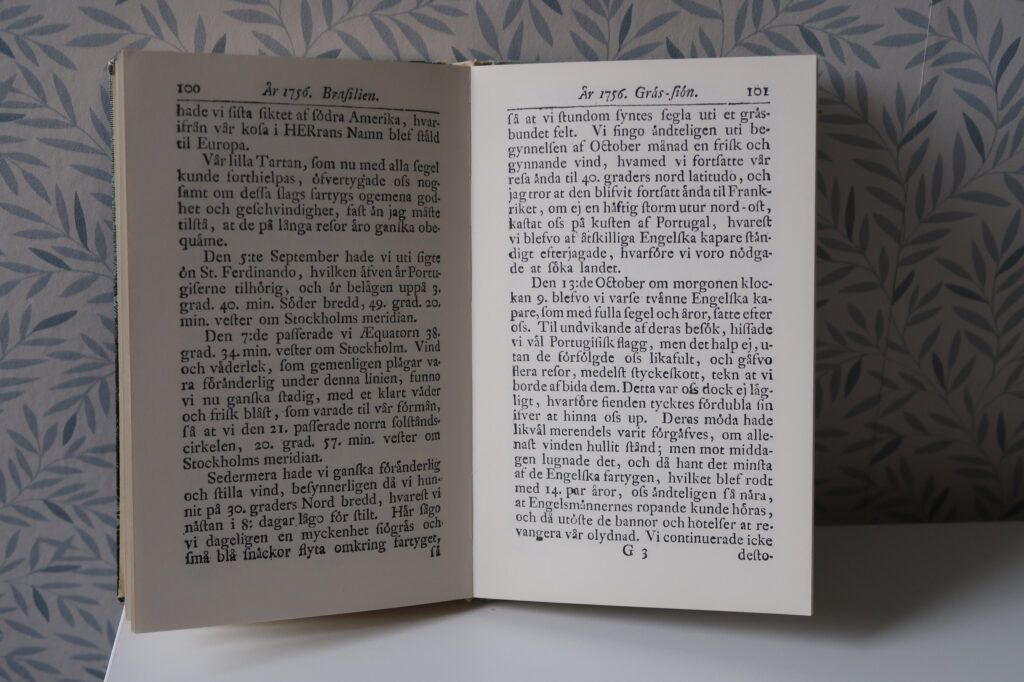
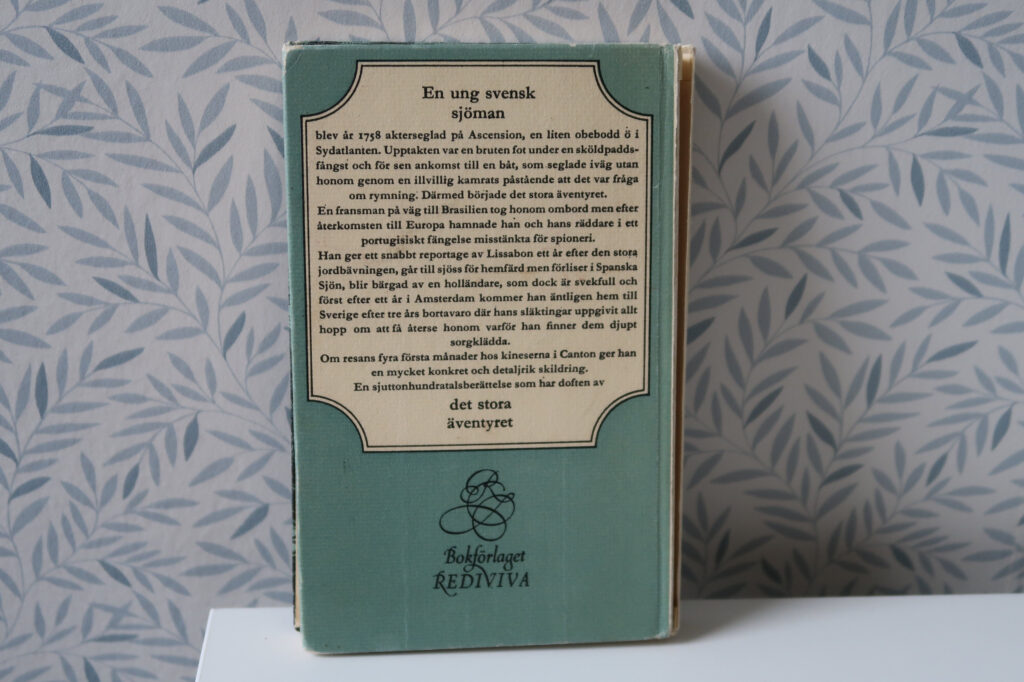
One interesting aspect in the book is how his own countrymen abandoned him and later in the book didn’t bother to help him in Amsterdam. It just goes to show that people are always people, sometimes a stranger will help you while a close neighbor does nothing. It’s a very honorable and touching part on the book when he parts with the French captain and crew. Just a food for thought when you hear people lament that people back in the days cared more about one another. However he gives another perspective as well. That the Swedes in Amsterdam avoided helping other Swedes due to earlier situations where they did indeed help and got screwed over. Could be some truth in that as well. One can understand that people wanted to live their life and not be beacons of salvation for every fellow Swede lost at the sea so to speak.
Johan Brelin became an inventor and priest after his homecoming, he still did some trips on the sea and got married on the 8th of March in 1765. He lived until 1782, when in July an add in the newspaper mentions his estate inventory with grief and sadness. This is what I was able to find in the Swedish Royal Library archives online.
Books often lead to more books. There is a lot out there and it’s easiest to get started over at archive.org.
Länk till alla som vill läsa boken – https://litteraturbanken.se/f%C3%B6rfattare/BrelinJ/titlar/BeskrifningOfverEnResa/sida/I/faksimil?om-boken
KB Tidningsarkiv online – https://tidningar.kb.se


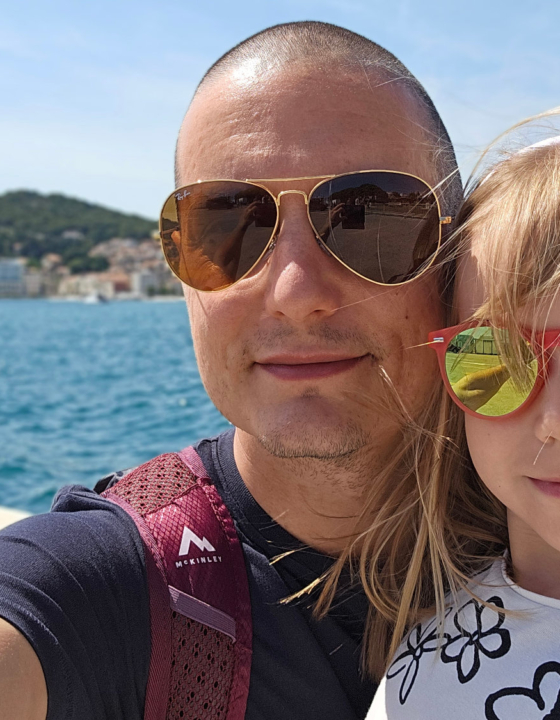
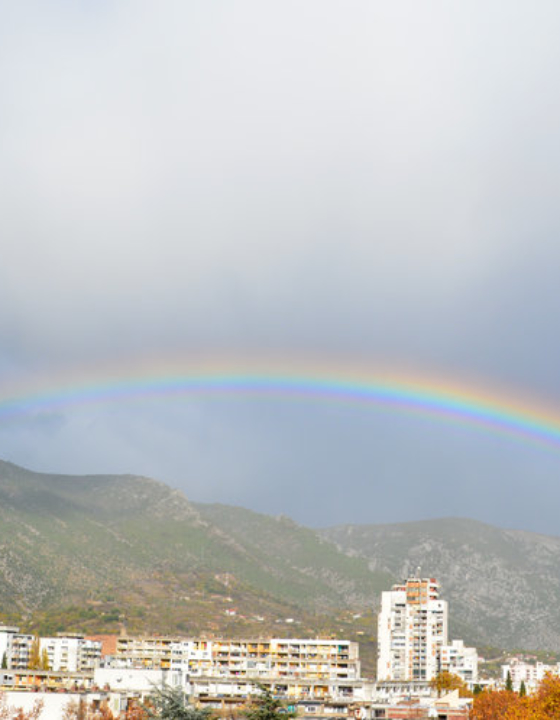


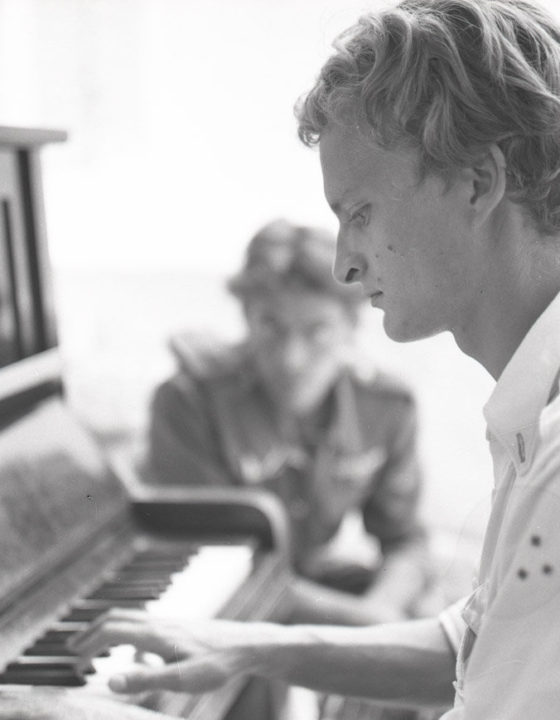

Edward. WOLSKI
August 8, 2020Its like among Polish people abroad..
We love to do as much harm as possible to ather fellow country man from Poland.
I was ever robbed of 5000 dollars
I